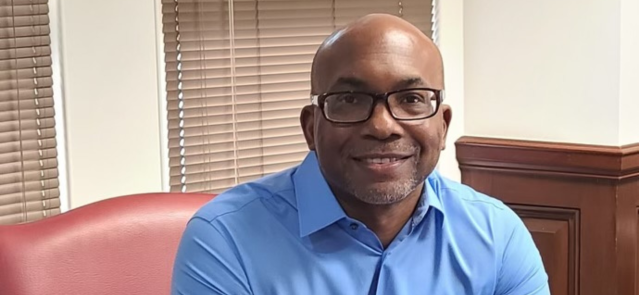Stay ahead of the curve as a political insider with deep policy analysis, daily briefings and policy-shaping tools.
Request a DemoThe opinions expressed in this article are the opinions of the authors and do not reflect the opinions of State Affairs.
Politicians and media often pose abortion rights as a political issue, as if the central characters are two opposing teams. Yet abortion happens in the lives of millions of real, regular people, who simply need and want to end their pregnancies for utterly personal reasons that cannot be debated away.
Data and history show clearly what happens when people can’t access abortion care: They and their families experience harm to physical and mental health and losses of financial and personal security that can last into the next generations. The consequences are unacceptable, and they are on the heads of the state lawmakers and lobbyists who turned abortion rights into a political game at all Georgians’ expense.
According to the Guttmacher Institute, people’s reasons for seeking abortions are personal and complex, including household finances, and concern about how pregnancy and parenthood might impact them and their families.
The Turnaway Study, a groundbreaking, 10-year research project headed by demographer Diana Greene Foster, found that half of all people seeking abortion care in the U.S. live below the poverty line, and research has shown that people denied access to abortion went on to have worse economic, physical and mental health outcomes – lasting for years – than those who were able to access care.
That’s on top of data from “The Comparative Safety of Legal Induced Abortion and Childbirth in the United States” report that states that regardless of whether a pregnancy was wanted or not, giving birth is 14 times riskier than having an abortion.
Georgia is already a dangerous state for pregnant people. Compared with the average pregnant person in America, Georgians are twice as likely to die during pregnancy and the postpartum year, and within that, the risk is three times higher for Black people than white people, reports the Centers for Disease Control.
Systemic inequities like lack of insurance and rural provider shortages create additional barriers to accessing quality prenatal and delivery care. Perhaps these factors explain the findings of a Georgia State University analysis of historical data: Increasing access to legal abortion reduced maternal mortality rates up to 30-40% among women of color; and, changes in state laws made more of a difference than the federal Roe decision itself.
Given this maternal mortality crisis, undertaking such a risk should be our own freely made decision, and no one else’s.
But, say, opponents of abortion rights, the only consequences that matter are to the many children they hope we’ll birth. Yet even here, what they have wrought is more harm. Studies have also found that when abortion is inaccessible, children suffer too – both the children born from undesired pregnancies and the other children they share a home with.
In Georgia’s most populous center, the cost of living increased by an unprecedented 9% last year. With the skyrocketing cost of childcare in particular, and minimum wage static since 2009, it’s hard to see how we’ll feed, shelter, and educate the children we can’t afford to have.
Anti-abortion centers – with their revival of “maternity homes” and their involvement in arranging infant adoptions – are then presented as solutions to the impending massive need. These establishments are practically unregulated and are not safe, responsible, effective, or robust enough to warrant the new public funding they’ll predictably seek.
Economic justice and reproductive justice are inseparable; it is our human right to decide when to have children and to parent the children we have. Neither strangers nor institutions may steal this role from us. Every reader with an empathetic imagination should shudder at the prospect.
The Reproductive Justice framework, conceived by Black women and joined by other communities of color, acknowledges that socioeconomic status, gender, and race shape reproductive healthcare experiences and outcomes and should therefore inform health policy.
Depriving someone of the right to bodily autonomy and to control the course of their life violates their human rights and dignity.
The Amplify Georgia Collaborative – a coalition of numerous partner organizations and allies, including SisterLove – organizes for protected and expanded abortion access. Our work is rooted in the South and in a vision of reproductive justice. We persevere because no matter the setbacks, the future must bring freedom. Reams of data and our collective lived experience bear out that denying people access to abortions injures their dignity, undermines their financial stability, and puts their health at significant risk.
If we want parents, children, and future generations to thrive, pregnant individuals’ self-determination must be wholeheartedly supported. Pregnancy and birthing should be freely chosen and robustly resourced by the entire community, as should abortion care.
Restricting access to abortion has countless ripple effects that only deepen the inequalities our organizations work daily to undo. In a just world, all people would have the resources to make informed decisions for their bodies, families, and broader communities – free from the coercive effects of economic, racial, and gender inequality. Although we believe deeply in the future we all deserve and will reclaim, we can’t change that today Georgia is on the brink of a very difficult era. A post-Roe future is fast approaching, and those who are ushering it in seem to not understand, or perhaps not care, what the costs will be to us all.
About the authors
Roula AbiSamra is the state campaigns director at Amplify Georgia Collaborative, an organization that works with several other organizations to organize for change at the state and local level so that all Georgians can access safe, affordable, and dignified abortion care.
Akayla Galloway is the Reproductive Justice Policy Fellow at SisterLove, Inc., which works to eradicate “the adverse impact of HIV, sexual and reproductive health rights and justice challenges impacting women and their families through education, prevention, support, research, and human rights advocacy in the United States and around the world.”
Newly minted Senate Minority Leader Harold Jones II: ‘I’m not the typical back-slapping politician’
Nearly 10 years into legislative life, Sen. Harold Jones II wouldn’t change anything about the experience. “I love every minute of it. Even when I hate it, I love it,” the 55-year-old Augusta Democrat told State Affairs. Come January, Jones will add another role to his legislative duties: Senate minority leader, a job held for …
Gov. Kemp calls on state agencies to be fiscally restrained amid record $16.5B surplus
The Gist Gov. Brian Kemp asked the state’s 51 government agencies for continued fiscal restraint when drafting their amended fiscal year 2025 and 2026 budgets. Most agencies adhered to his request even as the state’s general fund surplus hit a record $16.5 billion last month. Forty-five agencies, excluding state courts, followed the governor’s instructions to …
Georgia defies bomb threats as election chief declares a “free, fair and fast” vote amid record turnout
ATLANTA – Despite dealing with over 60 bomb threats, Georgia’s election chief said Tuesday the state’s general election went smoothly. Georgia had a record turnout with nearly 5.3 million people voting, Secretary of State Brad Raffensperger told reporters. Election officials in the state’s 159 counties have until 5 p.m. to certify votes. “We had a …
In the (state)house: Meet the newest members of the Georgia legislature
When lawmakers reconvene at the state Capitol on Jan. 13, there’ll be a cadre of new faces in the 236-member Georgia General Assembly, one of the nation’s largest state legislatures. All 236 statehouse seats were up for election this year. Most candidates ran unopposed. Incumbents in contested races easily kept their seats, with the exception …




